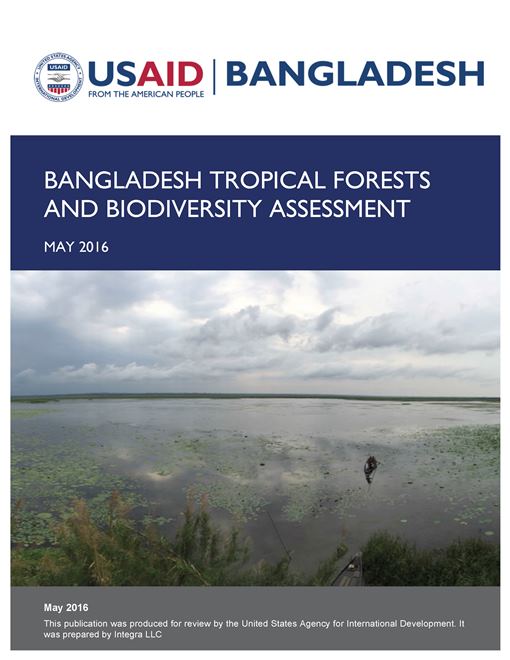Like most countries, Bangladesh is faced with many direct threats to biodiversity. With accelerating economic development and a growing population, many of these threats will intensify as well. This assessment team identified eight primary direct threats condensed from country reports to the Convention on Biological Diversity (CBD) and refined through interviews and site visits: 1) encroachment in protected areas; 2) degradation of forests and wetlands; 3) infrastructure development; 4) unsustainable and/or illegal exploitation of terrestrial resources; 5) unsustainable and/or illegal fishing practices; 6) change in hydrological regime; 7) pollution; 8) invasive species. As with reports to the CBD, no attempt was made to prioritize them, as the priority varies with the location, timing and the group setting priorities.
The indirect threats (root causes) are the institutional and environmental conditions that are behind the direct threats visible on the ground. The main indirect threats identified in the assessment include: 1) poor institutional capacity; 2) lack of coordination among different agencies; 3) policy and information gaps; 4) lack of enforcement; 5) inadequate and poorly managed system of protected areas; 6) corruption; 7) lack of political commitment; 8) lack of awareness; 9) climate and biophysical changes and 10) lack of alternate livelihoods in sensitive habitats. As with direct threats these vary in severity from situation to situation and are not prioritized here.
The Assessment follows up the status of tropical forests and wildlife with the “extent to which” USAID/Bangladesh addresses the identified threats and recommended “actions necessary”. Biodiversity and tropical forest activities are firmly seated in USAID Bangladesh’s Development Objective (DO) 4: Responsiveness to Climate Change Improved. Activities such as Climate Resilient Ecosystems and Livelihoods (CREL), Ecosystems Improved for Sustainable Fisheries (ECOFISH BD) and Bengal Tiger Conservation (Bagh) have strong biodiversity components and address some of the recommended actions. The activities conducted under the mission’s three other DOs, democracy, health and education and agriculture were also considered for their possible biodiversity and tropical forest linkages and any ways in which their activities might be harmful to biodiversity and forest conservation in the country.
Download the full report (PDF, 1.2 MB)








Comment
Make a general inquiry or suggest an improvement.